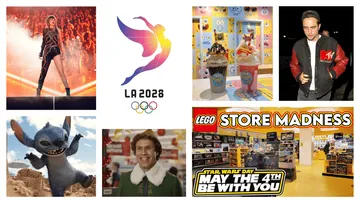With more people spending more time working from home and trends towards purchases online, especially from phones increasing, it has never been tougher to drive footfall in brick and mortar stores.
Without browsing in actual stores the chances of customers finding new products falls dramatically and can leave many products undiscovered.
Well known licensed brands have a unique role in helping bring consumers back to physical stores. In a recent exclusive interview with License Global, Sarah Jackson, Global Director, Licensing for Primark explained that for the global retail chain, the combination of unique experiences, digital enhancements, and a focus on the overall customer journey are key to keeping shoppers engaged.
She went on to state that licensing allows retailers to tap into key cultural moments to help drive footfall at key times.
Licensing brands are uniquely placed to not only enhance existing seasonal moments at retail like Halloween, Easter, Christmas and the 4th of July, but can also help create new retail hooks around film, video game and TV releases as well as music and sports events.
Although the theatrical box office has taken some time to get back to pre-pandemic levels, overall content consumption across cinema, TV, YouTube and other platforms continues to increase. Well known IPs are being used by the streamers to compete for eyeballs - there are plenty of remakes, reboots, spin offs and sequels as well as successful books and video games making their way to screens big and small.
All of which are perfect for licensed products, and retail. This year the Lilo & Stitch live action movie and second Wicked movie will drive conversations online and in real life as well as drive excitement and demand for products at retail. Retailers can take further advantage of loved brands by creating unique and engaging experiences. Primark fpr example, as well as creating cross category ranges with big brands and influencers, has also created fully branded cafe experiences around brands such as Disney, The Simpsons & SpongeBob SquarePants driving excitement online and footfall to stores. Many UK grocery retailers also tap into licensed entertainment brands for key campaigns, especially for the holidays, with Sainsbury's recently working with The BFG and Asda working with Elf for their advertising campaigns.
LEGO similarly creates unique moments to drive consumers to their branded stores - although a lot of the activity is also available to online shoppers. A good example is around their Star Wars May 4th campaign. As well as releasing new sets and running other promotions such as gifts with purchase, this year those that went in store could build a mini LEGO® Star Wars™ Grogu™ figure for free and take it home. Tapping into one of the franchise's currently most popular characters.
It's not just big releases and brands that can have this effect. Nostalgia continues to be a key trend which allows many IPs, be them fashion brands such as Kappa or Champion or other licensed brands that help create that throwback feeling like the MTV logo, Global Hypercolor or the Coca Cola logo.
Key events like the Olympics, Super Bowl and Soccer World Cup drive consumers to store to buy supplies for group viewing parties and huge music tours like Taylor Swift’s Eras or Beyonce’s Cowboy Carter drive footfall for finding the right outfits to wear. This also offers up a great opportunity for licensed products as consumers look for team and event branded products and clothing showing their love for the artists they’re going to see in concert.
Even online cultural trends can drive to retail. ‘Splitting the G’ where drinkers try and drink the right amount of Guinness from a pint glass so that the line ends up in the middle of the G of the Guinness logo on the glass has led to a resurgence of Guinness branded merch - particularly in fashion - across key fast fashion retailers such as Zara and Abercrombie & Fitch. And it appeared just in time for St Patrick's Day.
Shopping is and should be an event, not just a transactional moment. And licensed products offer retailers a unique opportunity to create meaningful experiential experiences at retail. Whether its enhancing existing retail moments or creating completely new ones.
